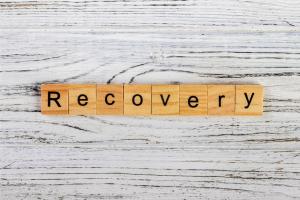
The Stages of Opioid Recovery: What to Expect
"Recovery from opioid addiction is a challenging yet achievable process that requires dedication and support at every stage," says Brian Norris. "Each stage presents unique challenges and opportunities for growth and healing."
Stage 1: Recognition and Acknowledgment
The first step in opioid recovery is recognizing and acknowledging the existence of an addiction. This stage involves admitting that there is a problem and understanding the need for help. It is often accompanied by a range of emotions, including fear, shame, and guilt. Support from family, friends, and healthcare professionals is crucial during this initial stage.
"Admitting to having an addiction is a significant milestone in the recovery journey," notes Brian Norris. "It opens the door to seeking help and starting the path to recovery."
Stage 2: Detoxification
Detoxification, or detox, is the process of eliminating opioids from the body. This stage can be physically and emotionally demanding as the body adjusts to the absence of the substance. Withdrawal symptoms, which can range from mild to severe, often occur during this stage. These symptoms may include anxiety, nausea, vomiting, muscle aches, and cravings.
"Detox is a critical phase that must be managed with medical supervision to ensure safety and comfort," explains Brian Norris. "Medication-assisted treatment (MAT) can help alleviate withdrawal symptoms and reduce cravings."
Stage 3: Early Abstinence
Early abstinence begins once detox is complete. This stage focuses on maintaining sobriety and developing strategies to prevent relapse. Individuals may experience ongoing cravings and emotional challenges as they adjust to life without opioids. Counseling and therapy play a vital role in this stage, helping individuals address the psychological aspects of addiction.
"Developing coping mechanisms and learning to manage triggers are essential during early abstinence," says Brian Norris. "Therapeutic support can guide individuals through these challenges."
Stage 4: Maintenance
The maintenance stage is characterized by sustained abstinence and ongoing efforts to prevent relapse. During this stage, individuals continue to work on their recovery goals and build a stable, healthy lifestyle. Regular participation in counseling, support groups, and other recovery activities is important to reinforce positive behaviors and resilience.
"Maintenance involves long-term commitment to sobriety and continuous self-improvement," states Brian Norris. "Support networks and healthy routines are key components of this stage."
Stage 5: Advanced Recovery
Advanced recovery is the stage where individuals have achieved long-term sobriety and have integrated their recovery into their daily lives. This stage involves continued personal growth, improved relationships, and a stronger sense of purpose. Individuals in advanced recovery often contribute to the recovery community by sharing their experiences and supporting others on their journey.
"Advanced recovery signifies a transformation in both mindset and lifestyle," observes Brian Norris. "It is a testament to the resilience and strength of those who have overcome addiction."
Challenges and Strategies for Success
Each stage of opioid recovery presents unique challenges. Understanding these challenges and employing effective strategies can enhance the likelihood of successful recovery.
Coping with Cravings: Cravings can be intense and persistent, particularly in the early stages of recovery. Strategies such as mindfulness, physical activity, and engaging in hobbies can help manage cravings.
Dealing with Triggers: Identifying and avoiding triggers is crucial to prevent relapse. Developing a plan to cope with high-risk situations can provide a sense of control and preparedness.
Building a Support Network: Support from family, friends, and peers in recovery is invaluable. Participating in support groups and connecting with others who understand the journey can offer encouragement and accountability.
Maintaining Mental Health: Addressing co-occurring mental health conditions, such as depression or anxiety, is essential for overall well-being. Integrated treatment approaches that address both addiction and mental health can improve outcomes.
Conclusion
Opioid recovery is a journey that unfolds in stages, each with its own set of challenges and milestones. From recognition and detoxification to early abstinence, maintenance, and advanced recovery, understanding what to expect can empower individuals and their families to navigate this path with greater confidence and resilience. Brian Norris and the team at Prestige Medical in Mobile, Alabama, are committed to providing the support and resources needed to help individuals achieve lasting recovery from opioid addiction.
Morgan Thomas
Rhino Digital, LLC
+1 504-875-5036
email us here
EIN Presswire does not exercise editorial control over third-party content provided, uploaded, published, or distributed by users of EIN Presswire. We are a distributor, not a publisher, of 3rd party content. Such content may contain the views, opinions, statements, offers, and other material of the respective users, suppliers, participants, or authors.



